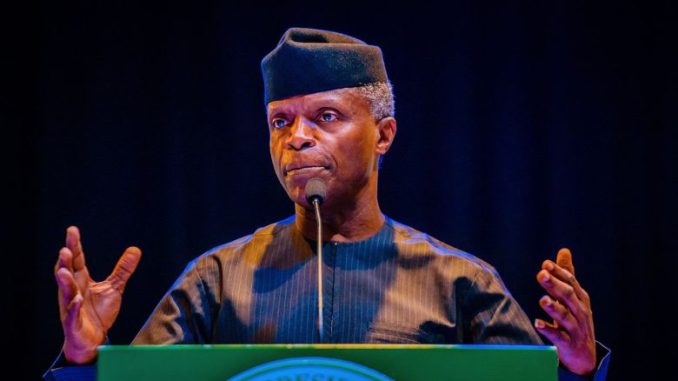
Former Vice President Yemi Osinbajo has called for a total overhaul of Nigeria’s legal and judicial philosophy, criticising what he described as the persistent tendency of courts to prioritise procedural technicalities over the pursuit of substantive justice.
Osinbajo, a Senior Advocate of Nigeria and Professor of Law, made the call on Thursday in Ilorin, Kwara State, during the second Professor Yusuf Ali Annual Lecture organised by Kwara State University (KWASU), Malete.
He stressed that the fundamental purpose of any justice system should be to serve the people and uphold fairness—not to glorify procedural rigidity or technical loopholes.
SPIRITUAL SOLUTION THAT WORKS
Are you in need of spiritual guidance about your life?
Do you need a complete spiritual check-up to balance your spiritual life, your Dreams and your spiritual suspicious?
Look no further!
Consult With Trusted A highly experienced spiritual guide.
DR ADAMS ADAM
Will Guide you to achieve Success, Wealth, Healing Possessions and protection, bręakthrough. Spiritual power, healing & cleansing, Peaceful relationship. Get our natural Male Enhancement to Improved your libido, sexual performance and Enhanced fertility. Our spiritual check-up program will reveal the hidden secrets about your Life and solution. For spiritual consultation and counseling.
ON MATTERS OF THE MIND, BODY AND SPIRIT.
Call or WatsApp + 2 3 4 7 0 6 2 1 5 6 8 3 4
With god All things
LOCATED AT “ABUJA, LAGOS, OSUN
“The essence of justice is not in the form but in the substance. Unfortunately, many of our court decisions, including some delivered by the Supreme Court, tend to focus more on procedure rather than the core issues of justice,” Osinbajo stated.
Drawing comparisons with other legal systems, the former Vice President noted that even the English courts, from which Nigeria’s legal traditions were derived, have moved beyond rigid proceduralism by allowing amendments at any stage of proceedings to ensure justice prevails.
He warned that Nigeria’s obsession with outdated technicalities not only impedes the delivery of justice but also weakens public confidence in the judiciary.
“In view of this, I urge legal practitioners, academics, and policymakers to engage in critical and decolonised thinking towards reforming our legal education, legal practice, and overall administration of justice.
“It is important to understand that a justice system which continues to glorify form over substance risks losing both its relevance and its moral authority,” he added.